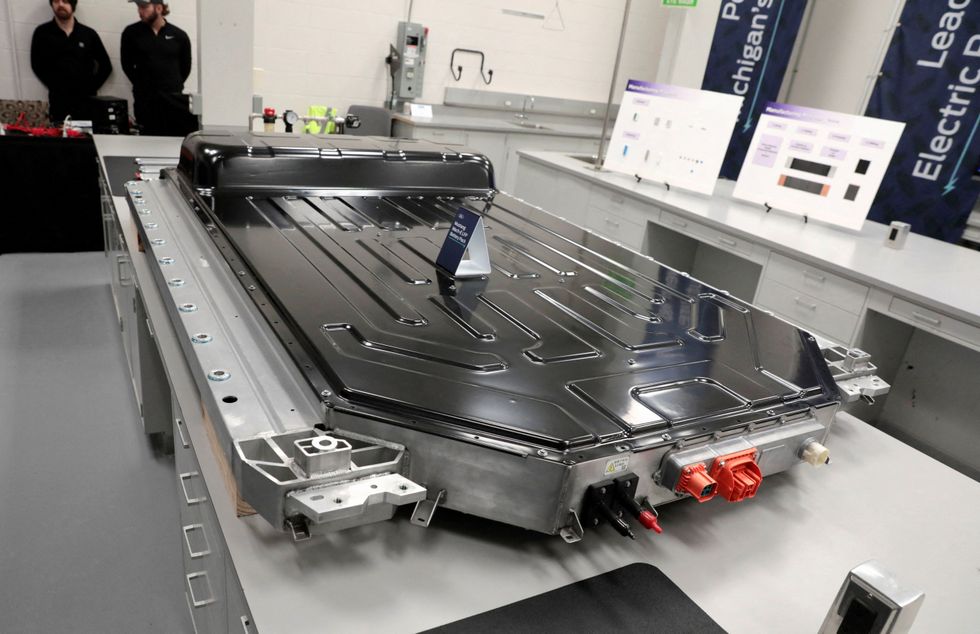A new report is warning about the dangers of electric car batteries overheating
PA
Major car brands were forced to recall electric cars because of battery fears
Don't Miss
Most Read
Trending on GB News
A new report has warned about the dangers of electric vehicle batteries which have caused instances of fires and explosions.
Lithium-ion batteries are used in electric vehicles and other electrical goods, with fast charging times and a lightweight design making them very popular.
However, a new report has highlighted the dangers of the batteries which could lead to fires, explosions and even the release of poisonous and toxic gases.
Between 2020 and 2022, a minimum of 360,000 electric vehicles needed to be recalled because of safety concerns in the United States and Germany by five major car manufacturers.
WATCH NOW: Battery causes dangerous house fire
GM Motors and Hyundai recalled cars due to the risk of fire, while Ford warned that the battery could overheat, resulting in a loss of propulsion power, potentially increasing the chance of an accident.
Volkswagen was also forced to recall 50,000 Mustang Mach e models as the battery cells could show an increase in “self-discharge”, according to the Allianz Commercial report.
Michael Bruch, Global Head of Advisory Services, Risk Consulting at Allianz Commercial, said the report would lay out the concerns of lithium-ion batteries found in electric cars.
He added: “Emerging risks have unique characteristics that require specialist technical, management and organizational skills.
“Our risk consulting expertise across different industries and lines of insurance business around the world is key to helping companies understand and mitigate these.
“In our new Emerging Risk Trend Talk series, we will address such topics, highlight loss events and look at targeted loss prevention measures.”
Allianz Risk Consulting supports the idea that all owners of electric cars should look to see if their car is affected by “thermal runaway” every two to three years.
This causes a sharp rise in the internal battery temperature causing the battery to destabilise and fail and potentially explode.
There have been a number of real-life instances of this happening on land and at sea, with experts suggesting that batteries should be checked before sales, transportation by sea and even if an electric car is regularly parked in a garage.
One ship, the Fremantle Highway, caught fire when it was carrying almost 3,000 electric vehicles when it was travelling from Germany to Egypt.
The blaze caused the death of one person and injured several others, with the owner of the ship suggesting that an electric car in the cargo was a possible cause of the fire.
Another event saw a fire break out at a commercial warehouse in California where a resident operated an electric bicycle and scooter import and repair scheme.
It is believed that the lithium-ion batteries in the vehicles were to blame, with more than 1,000 batteries needing to be separated from the debris to adhere to environmental laws.
In total, the clean-up operation cost almost $2million (£1.64million) and required a 24-hour fire watch as the batteries continued to explode.
LATEST DEVELOPMENTS:

Almost 360,000 EVs needed to be recalled because of battery fears
REUTERS
It is estimated that the lithium-ion battery market will grow by over 30 per cent annually between 2022 and the end of the decade.








